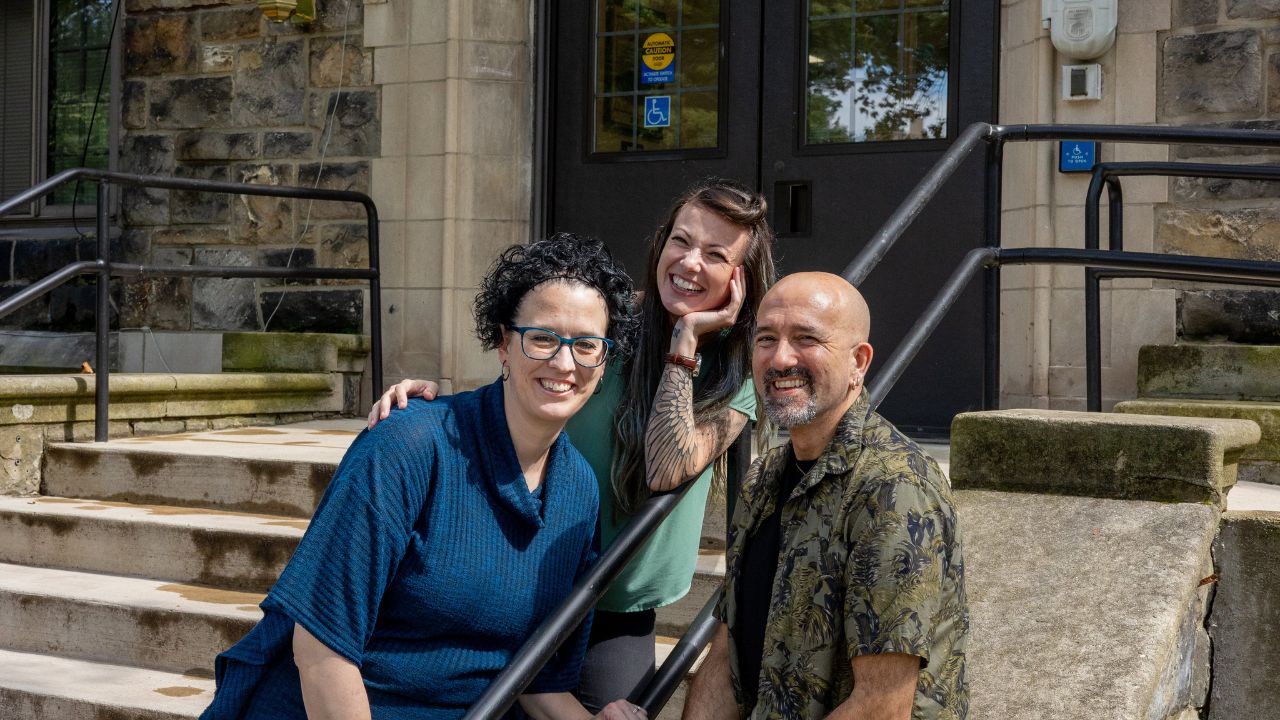
It’s that time of year again. Well-intentioned people are making their New Year’s resolution lists and checking them twice. What’s on yours? Work out more often? Stop eating sugar? Be more patient with friends and family? Earn more money?
Eating healthier, getting more exercise and saving more money were the top three resolutions for New Year’s 2018, according to Data Journalist Martin Armstrong. However, 32 percent of the people surveyed this time last year stated they did not plan to make any resolutions. Why the resolving not to resolve?
Failure and The False Hope Syndrome
University of Scranton researcher and Distinguished Professor of Psychology John C. Norcross, Ph.D., has been studying the success and failure rates related to New Year’s resolutions for years. His 1989 study found that 77 percent of participants were able to keep their resolutions "continuously for one week." His follow-up research in 2002 showed that 71 percent of resolvers kept their commitments for one and two weeks. In other words, about 25 percent of people who make resolutions don't stick with it until January 7th. No wonder so many people don’t even bother trying anymore.
Those that do keep trying despite the massive failure rate might be suffering from “False Hope Syndrome.” This term refers to the cycle of repeated failed attempts to change ourselves. Why do some people keep trying? Researchers propose:
- The feelings of control and optimism that often accompany the early stages of self-change attempts provide some initial rewards, even when unsuccessful.
- Unrealistic expectations concerning the ease, speed, likely degree of change and presumed benefits of changing may overwhelm the knowledge of one's prior failures.
“It is thus important to learn to distinguish between potentially feasible and impossible self-change goals in order to avoid overconfidence and false hopes leading to eventual failure and distress,” notes the Abstract for the 2001 study.
In a 2008 interview with National Public Radio (NPR), Dr. Norcross states: "It's not so much the resolution as it is how attainable or realistic the goal is. You know, someone says I'm going to lose 50 pounds and keep it off this year versus I think I'll struggle to keep 10 off — that's a little more realistic."
So how can you increase your chances for success and avoid distressing failure this year?
Let’s look at three common New Year’s resolutions and apply strategies that support stick-to-itiveness and long-term sustainability.
- Get healthy (lose weight, increase physical fitness and stamina)
- Be a better steward of money (change jobs, advance in current position, save more)
- Get more education and training (career development, personal enrichment)
Apply the following three tips for New Year's resolutions success.
1) Generate passion for your goal prior to Jan. 1
Research shows that the people who succeed in keeping their resolutions start thinking about them long before the new year. Use the period known as the "contemplation phase" to build your confidence, motivation, and desire. Inspire yourself into action with some self-reflection:
- Why do you want to get fit and healthy? Is it to be able to have more freedom of movement? Maybe it’s a matter of personal pride in how you look to others or a desire to care for the body God has given you.
- What would your life be like if you had more financial discipline? Perhaps saving more money each month to pay down debt would feel like a huge weight being lifted from you.
- Are you bored to tears with your current job? Maybe it’s time to get an advanced degree that lets you use all of your skills and talents for a more fulfilling career.
2) Make your goals specific, attainable and measurable
“Vague goals beget vague resolutions," John C. Norcross, Ph.D. told NPR. Make your resolutions both tangible and realistic so you’re not setting yourself up for failure from the get-go.
For improved health, start with doable goals such as:
- I’ll exercise at least three times a week.
- I’ll cut out sugar and white flour.
- I’ll practice stress-reducing self-care at least twice a week in the form of a
massage , long bath, nature walk or extra-long prayer and meditation session.
If you’ve got your sights set on running your first marathon in 2019, schedule a 5K, then start training for a 10K. Register for a half marathon once you’ve nailed the 10K distance. And if you give yourself enough time to confidently tackle a series of progressively bigger steps over the months, you could be crossing the finish line at your first marathon by year’s end.
To improve your financial situation, you might resolve to:
- Save 10 percent of every paycheck.
- Tear up one credit card and start paying 10 percent more than the minimum each month.
- Spend two hours every week reaching out to colleagues to see if there are other job opportunities in your professional network you might qualify for.
- Request a meeting in January with your current employer in which you express a desire to advance. Find out what specific steps you can take to qualify for
promotion .
To enjoy a more enriching and fulfilling personal life in the new year, look into:
- An undergraduate or graduate degree program that would help you serve others more effectively and wholeheartedly in a field you’re passionate about.
- Volunteering opportunities in your community that let you give of yourself to help people, animals or your community.
- If you’re currently enrolled in a college, explore Adventure Learning programs or Immersion Trips available to you. You get the chance to connect deeply with other students, hone your leadership skills and broaden your understanding of different cultures and societal issues.
3) Let others hold you accountable for keeping your resolutions
One of the best ways to sustain your motivation over time is to let friends and family know what you’re trying to achieve. When you start to falter, they can remind you of your goals, encourage you and help you get back on track.
You can also team up with other people who share your resolution for extra support. Dr. Norcross told NPR that enlisting social support during the “contemplation stage” is a great way to move into the action stage. Finding classmates, co-workers or family members to join with—even if you don’t share the same resolution—provides the incentive you need to stick to your plan when willpower starts to slip later in January.
If social media and blogging call to you, use your Facebook page or personal website to start an online journal documenting your New Year’s resolutions. Make a public declaration about your commitment, and let others track your progress along with you. It’s a great way to stay accountable, and it will help reinforce the changes you’re trying to make so that they become permanent and enduring blessings.
If you’d like to learn more about professions that enable you to serve wholeheartedly and faithfully in your life’s work or want to learn more about a biblically based, Christ-centered education at Geneva, we’d love to chat with you. For more information on how Geneva College can help you pursue your education goals, please phone us at 855-979-5563 or email web@geneva.edu.
Opinions expressed in the Geneva Blog are those of its contributors and do not necessarily represent the opinions or official position of the College. The Geneva Blog is a place for faculty and contributing writers to express points of view, academic insights, and contribute to national conversations to spark thought, conversation, and the pursuit of truth, in line with our philosophy as a Christian, liberal arts institution.
Dec 21, 2018Everyday LivingRelated Blog Posts
Request Information
Learn more about Geneva College.
Have questions? Call us at 724-847-6505.










 Online Course Login
Online Course Login